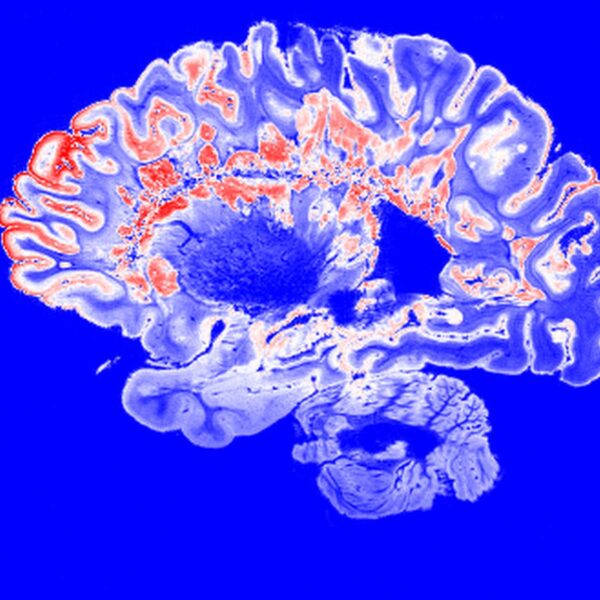
Message for the Seventeenth Sunday after Pentecost, Year C (10/5/2025)
Psalm 37:1-9 & Luke 17:5-10
I don’t generally do much Bible study in my preaching, but today I think it’s worth a little time to examine a particular phrase in the Psalm assigned for today. So, everyone open your books! About a third of the way through the red hymnal– Evangelical Lutheran Worship, or ELW for short– you’ll find Psalm 37. The Psalms are considered the first 150 hymns of the church, so if you reach hymn #151 in the Service Music section you’ve gone too far.
In the hymnal, the Psalms are translated for singing, so the language varies a bit from translations that are intended for study. Psalm 37 is an excellent case. The New Revised Standard Version of the Bible, or NRSV, for instance, translates the first verse, “Do not fret because of the wicked….” Although that’s basically accurate, it misses the fullest sense of the Hebrew phrase al-titkhar, which suggests a more intense and reactive response. Al-titkhar denotes jealousy, anger, heated competition.[1] So in this case, I prefer the translation in our hymnal: “Do not be provoked by evildoers….” Do not be provoked, that is, don’t be incensed, rattled, exasperated. Do not be provoked, that is, don’t be obsessed, distracted, tossed to and fro. Do not be provoked, that is, don’t lose sight of your center.
When something worrisome happens, there is a difference between saying “Don’t worry” and “Don’t be consumed by it.” Minimizing a real crisis is never wise or kind; “calm down” is about the worst thing you can say to a person who has every reason to freak out. But there is wisdom in tending to our internal lives, especially in times of trial. Learning to regulate our emotional response to stress can help us cope and react in more faithful, and more helpful, ways.
Ok, you can put your hymnals away. Bear with me, will you, as we transition briefly from Bible study to brain science, an even less common topic in the sermon. Again, I think it’s important enough to mention in some detail. Trauma expert Resmaa Menakem explains how recent discoveries are helping us better understand the relationship between thinking and feeling:
[Excerpts from My Grandmother’s Hands, pp. 5-6]
In other words, reactivity is a natural bodily phenomenon. It’s not only that we should have a strong emotional response to troubling events, but that we inevitably will. The question is how to handle it.
That’s where faith comes in. “Increase our faith,” the Apostles plead with Jesus in today’s Gospel from Luke, to which he replies that even a little faith can rearrange the landscape. And although their faith is smaller than a seed, it’s enough to meet the challenges they’re bound to face. Apparently, faith isn’t a supply; it’s not a resource to acquire or accumulate. Instead, faith is a way of being, an orientation to God and to the world. So, rather than grow the faith of his followers, Jesus dispels their fears about having too little in the first place: Yes, your faith is small, he implies, nevertheless I have called you to a life of purpose.
What a privilege, that despite our imperfections and insecurities, Jesus entrusts to us the work of faith, the day-to-day responsibility to love God and our neighbors as ourselves.[2] And what’s more, “when you have done all that you were ordered to do, say… ‘We have done only what we ought to have done!’” That is to say, keep showing up, come what may; keep showing up, and trust the process.
That message resonates quite well with the one in the Psalm, don’t you think? “Do not be provoked by evildoers,” but instead, “commit your way to the LORD; put your trust in the LORD, and see what God will do.” Keep showing up, come what may; trust the process, because God is faithful.
In these uncertain times you have every reason to freak out. So I won’t tell you not to worry. I will, however, encourage you with the words of pastor and peace activist William Sloane Coffin: “It is terribly important to realize that the leap of faith is not so much a leap of thought as of action…. One must, in short, dare to act wholeheartedly without absolute certainty.” Friends, if our faith is founded on the deep and abiding assurance that “God holds our tomorrows,” then we can face today with calm and courage.[3]
As a place to start, why not engage in that ancient and proven practice to settle your nerves: singing aloud. As Resmaa Menakem advises, “Sing a slow, soothing song…. [And] afterward, notice what your body experiences.”[4]
If you but trust in God to guide you
with gentle hand through all your ways,
you’ll find that God is there beside you
when crosses come, in trying days.
Trust then in God’s unchanging love;
build on the rock that will not move.[5]
[1] Fred L. Horton, in Feasting on the Word, Year C, Vol. 1, 371.
[2] Luke 10:27.
[3] Andrew Nagy-Benson, in Feasting on the Word, Year C, Vol. 1, 370.
[4] My Grandmother’s Hands, 145.
[5] Georg Neumark, “If You But Trust in God to Guide You,” Evangelical Lutheran Worship, Pew Edition, #769.
Liturgy © 2022 Augsburg Fortress. All rights reserved. Used by permission under OneLicense # A-706920.
Liturgy © True Vine Music (TrueVinemusic.com). All rights reserved. Used by permission under CCLI license #11177466.
“God is Here!”; Text © 1979 and music © 1942, Ren. 1970 Hope Publishing Company, Carol Stream, IL 60188. All rights reserved. Used by permission.
“Great Is Thy Faithfulness”; text: Thomas O. Chisholm, 1866-1960; music: William M. Runyan, 1870-1957; text and music © 1923, ren. 1951 Hope Publishing Company. All rights reserved. Used by permission under OneLicense # A-706920.

